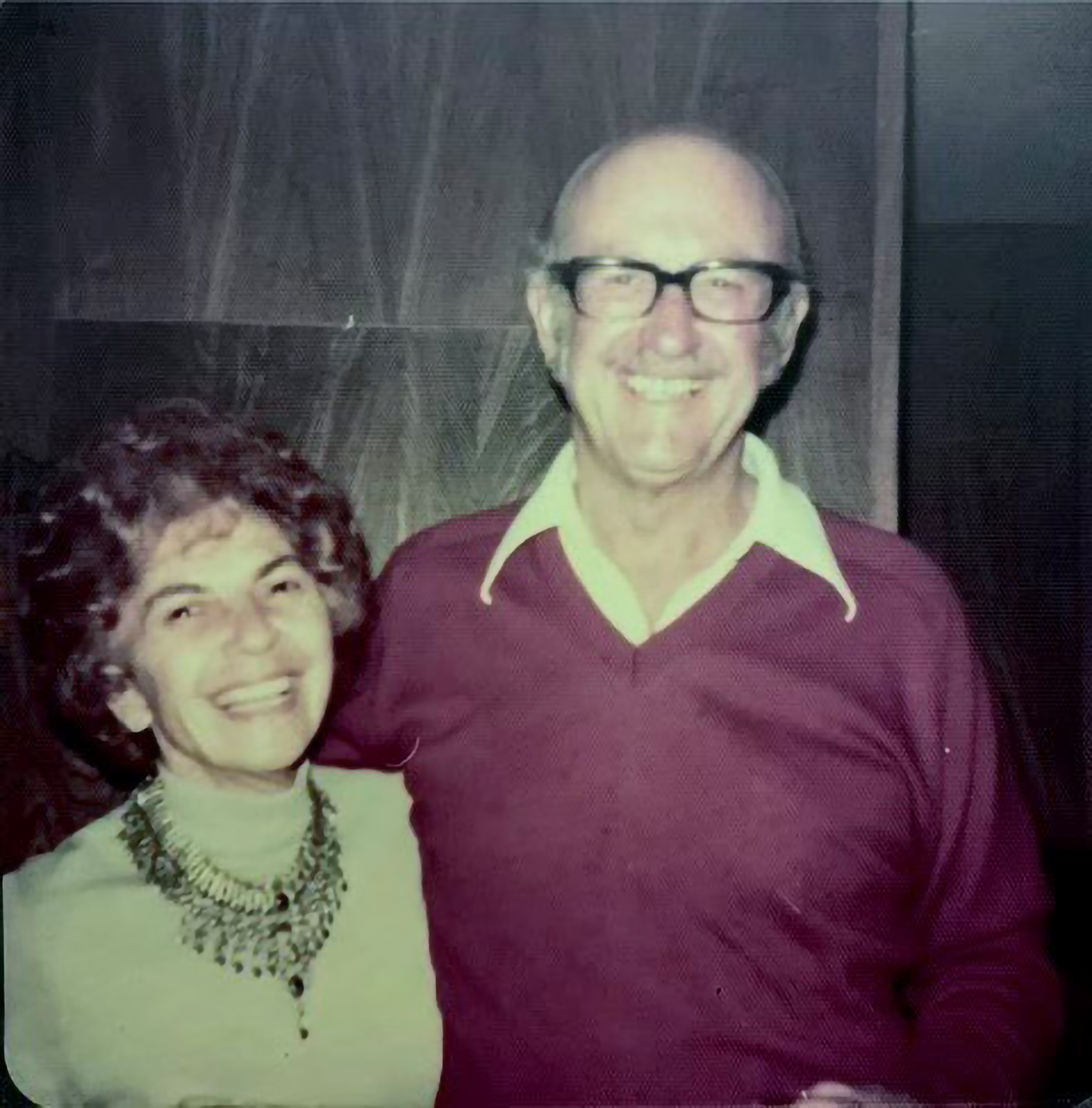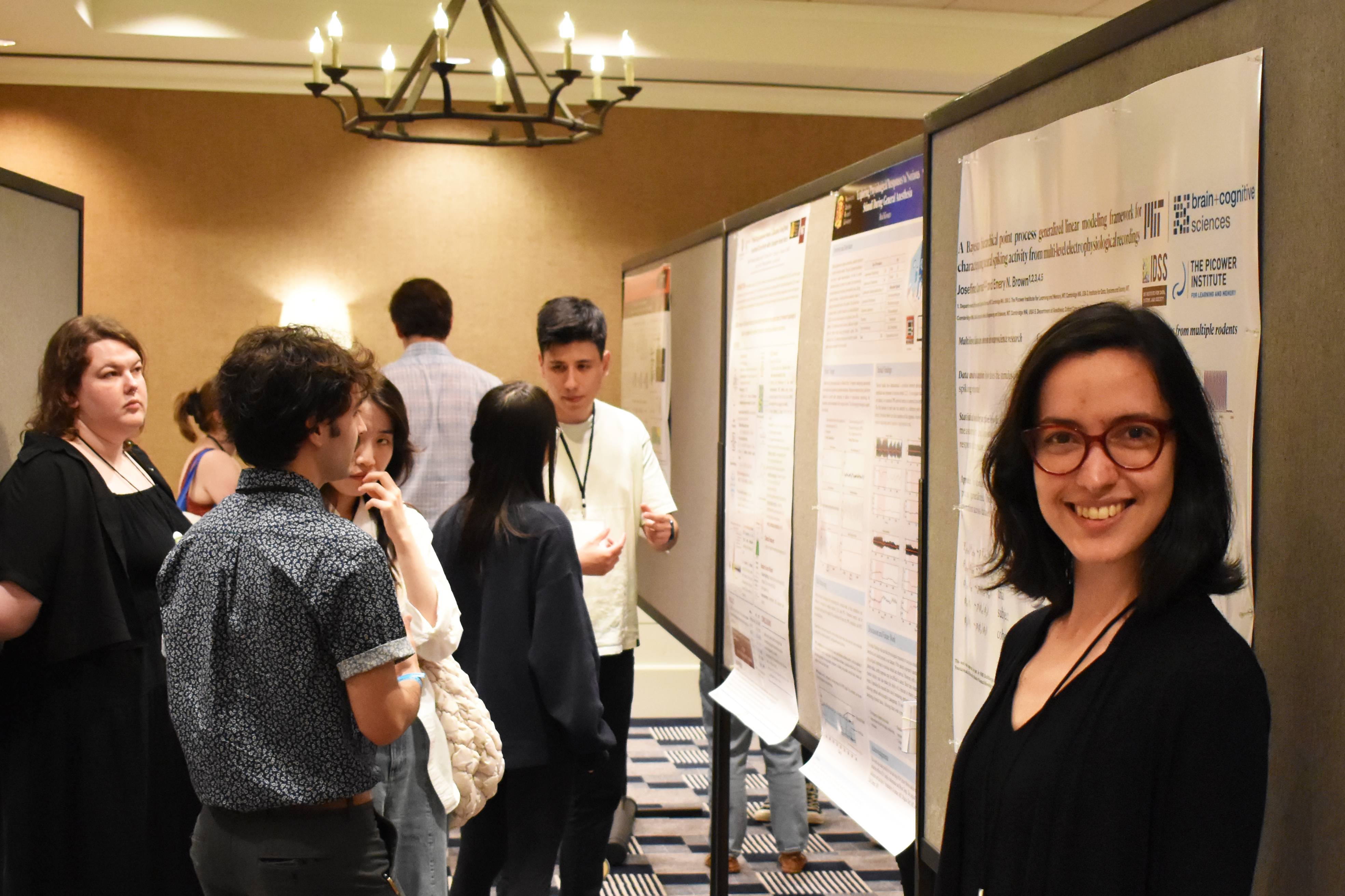Sometimes the best way for researchers to advance their science is to take a break from their day-to-day, heads-down focus for a change of scenery that enables new ways of thinking and interacting with colleagues. The annual Dana and Betty Fisher Retreat, held every June, is the step back that helps scientists in The Picower Institute for Learning and Memory move forward.
“The retreat is literally getting off campus so that everyone is closer together and there are no distractions. All you have is one another. It’s a substrate for relaxed, informal discussions,” said Picower Professor Mark Bear. “It’s really a central part of the intellectual life of The Picower Institute.”
Held in late spring along the Massachusetts coast, the retreat blends professional opportunities such as talks about research and careers with social activities such as beach volleyball and karaoke. Freed from their benches and desks, researchers can hear from and interact with colleagues from other labs whom they might not see much in Cambridge.
As one Picower Institute member said in a survey after this year’s retreat June 4-5 in Gloucester: “The retreat is where I meet most of the people outside my work area.”
Since 2014 retreats have alternated between being Picower-only, like this year’s, or combined with those of the Department of Brain and Cognitive Sciences and the McGovern Institute for Brain Research, like last year’s in North Falmouth.
An opportunity ensured
The retreat got its name back in 2008 when the tradition, begun by the Institute’s founding director Picower Professor Susumu Tonegawa, needed an enduring source of funding. That came after a fortuitous meeting of minds between Bear, then The Picower Institute’s director, and Wendy Fisher.
Fisher was seeking to honor the legacy of her parents, Dana and Betty, by distributing charitable funds they had left for her to manage. When they met in Cairo, Egypt, Dana worked for Trans World Airlines, and Betty worked for Life Magazine. They raised Wendy and her siblings on the family’s farm in California’s Palo Verde Valley. Betty spoke often and passionately of her love of languages (she knew seven) and the explanatory power of the natural sciences, especially chemistry, which she studied at Wellesley College. Dana was fascinated by the scientific study of the mind and human behavior, and greatly valued the scientific method, putting the latest technologies to use in modernizing the farm. Wendy said they valued education, health and science above all. Wendy’s own experiences confirmed the value of collaborative, interdisciplinary approaches to problem solving and research.
When Betty died, a trust provided money for Wendy to donate to carry on their values. Amid her research on where to best make the donation, she visited Cambridge. She had met with various organizations and institutions, trying to find where her parents’ interest in education might also further research into Alzheimer’s--her multilingual mother had become unable to reliably communicate in any language due to the disease. The Picower Institute, where memory and Alzheimer’s studies are prominent, merited a visit.
At the time of Fisher’s visit, Bear had made fomenting collaboration at the Institute a top priority and was focused on ensuring the retreat’s continuation. He and Fisher met and over the course of a few conversations that they each recall fondly, and together created an endowment for the Dana and Betty Fisher annual retreat that has become a fixture of The Picower Institute.
“I was so grateful,” Bear said. “The timing could not have been more perfect. The whole thing was in jeopardy and this saved it.”
Fisher said it represented a perfect match in supporting extracurricular educational experiences, and hoped it would foster stimulating scientific conversations, collaboration and research into Alzheimer’s.
Fisher said she is certain that her parents would be delighted that top scientists meet others in their community outside of their normal environment. The intent was to enhance the potential for informal conversations and lasting relationships that lead to unexpected connections and, in turn, to breakthrough research into the brain and its afflictions.
Valuable in many ways
Every retreat’s program is different, but they each involve a mix of scientific, professional and social activities. At poster sessions, postdocs, graduate students and other researchers can present research in progress and get feedback from colleagues who visit. Retreats frequently include science talks, sometimes from institute trainees and sometimes from guest speakers, and this year featured panels of faculty or other experts discussing science careers or other professional practices and issues.
Anjanet Loon, technical associate in the lab of Institute director and Picower Professor Li-Huei Tsai, said she drew inspiration from the faculty talks.
“Receiving advice and life stories from Picower’s professors felt like a unique privilege, offering early-career individuals like myself invaluable insights and relatable experiences,” she said. “Their openness about the difficulties and joys of their journeys resonated with me, and reflecting on their experiences broadened my perspective on how challenge and uncertainty can actually be foundational to innovation and success.”
Among the faculty who spoke was Menicon Professor Troy Littleton, who said retreats provide many benefits.
“The Picower summer retreat enables lab members to present their research in a professional setting and to interact with other Picower labs to get input,” Littleton said. “The informal nature of the retreat structure also provides plenty of time for inter-lab bonding that plays an important role in enhancing lab morale. Moreover, the ability of lab members to learn more about the ongoing research in other Picower labs facilitates both future collaborations, while providing insights into state-of-the-art neuroscience methodology that could be adapted by our lab down the road.”
This year’s retreat featured a “speed networking” session in which participants could discuss each other’s research and discover shared interests before “rotating” to talk to new partners. At the end, several pairs reported out their favorite findings. For example, even though Loon has spoken about lab techniques before with Prachi Ojha, a postdoc in the lab of Newton Professor Mriganka Sur, speed networking gave her the chance to learn about a particular scientific interest they share: the dysfunction of cells called astrocytes in disease. Loon is interested in the cells in the context of Alzheimer’s disease so she said she enjoyed hearing about how Ojha studies them in Rett syndrome.
“Over the years I feel that the retreats have been part of what makes MIT special,” Loon said. “The retreats not only allow us to showcase and learn about some of our incredible research, but also foster a community where collaboration and connection thrive. To me, the Picower retreat is a reminder that working together as researchers is as much about the science as it is about supporting each other and growing together. I left feeling inspired and more connected to the brilliant minds around me.”
Josefina Correa Menéndez, a PhD candidate in Edward Hood Taplin Professor Emery N. Brown’s lab, expressed a similar sentiment. Menendez gave a talk last year and presented a poster this year describing her development of a model for improving the statistical analysis of recordings of neural electrical activity by integrating insights from multiple levels of measurement. For Menéndez, the retreat is an opportunity to learn how her model could be applied by fellow scientists.
“I gained new perspectives on the impact of my work by talking with researchers working in different fields,” Menéndez said. “As someone who works on statistical model building and signal processing tools, it is immensely valuable to learn how my work could benefit experimentalists optimally. These opportunities have provided the space for me to do that.”
While presenters benefit from feedback, everyone who visits their poster or hears their talk can get a sneak preview of what’s going on around the Institute. Scientists have shared some of the Institute’s biggest discoveries at retreats over the years before they’ve appeared in journals. For example, In May 2013, former Tonegawa Lab members Steve Ramirez and Xiu Liu discussed their research on memory manipulation in mice two months before it made an international splash in Science.
In many ways, over many years, the Dana and Betty Fisher Retreat has been a uniquely valuable opportunity for The Picower Institute community.



